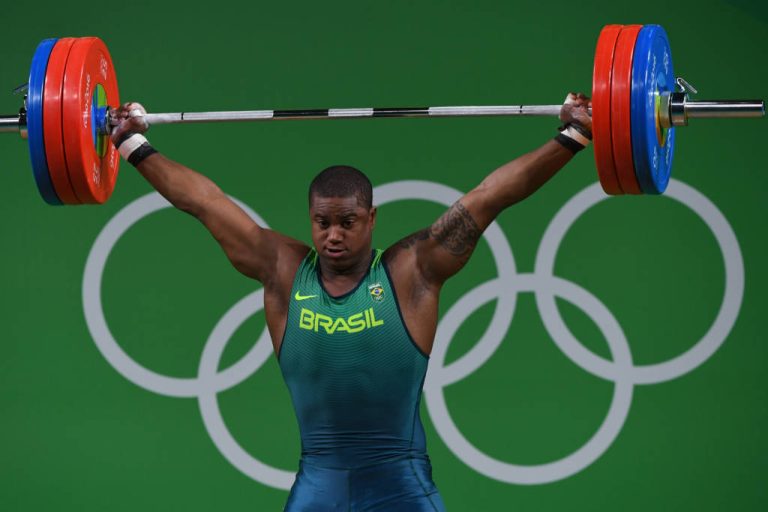Nutrition for Athletes: Complete Guide to Optimizing Sports Performance
Introduction
Nutrition plays a crucial role in the world of sports. For athletes, a proper diet is as essential as rigorous training.
This article addresses the “Nutrition for Athletes”, exploring how strategic eating can improve performance, speed recovery and maintain optimal overall health. Understanding the complex relationship between nutrition and physical activity is essential for athletes looking to maximize their potential.
A nutrition Sports is not a one-size-fits-all approach. It varies significantly depending on the type of sport, training intensity and individual goals of the athlete.
Here, we'll uncover the fundamental aspects of nutrition for athletes, offering insights into balanced diets, meal timing, and supplementation. In addition, we will bring you expert tips to help athletes make informed decisions about their diet.
Index

Fundamentals of Nutrition for Athletes
Macronutrients: The Basis of Energy
For athletes, macronutrients – proteins, carbohydrates and fats – are the pillars of nutrition.
- Proteins: Essential for repairing and building muscle, proteins are crucial, especially after exercise. High-quality sources include lean meat, fish, eggs and plant-based alternatives such as legumes and tofu.
- Carbohydrates: They are the main source of energy for athletes, especially those involved in high-intensity activities. Good sources include whole grains, fruits and vegetables.
- Fats: Although often viewed as negative, fats are essential for overall health and energy function, especially for endurance activities. Healthy sources of fat include nuts, seeds, avocado and vegetable oils.
Micronutrients: Vitamins and Minerals
Micronutrients, although necessary in smaller quantities, are vital for athletic performance.
Vitamins like B12, D and C and minerals like iron, calcium and magnesium play critical roles, from energy synthesis to bone health and immunity.
Hydration: Vital for Performance
Adequate hydration is crucial for athletic performance. Water regulates body temperature, lubricates joints and helps transport nutrients.
Dehydration, even mild, can significantly impair athletic performance and recovery.
Specific Diets for Different Types of Athletes
Nutrition for Endurance Athletes
Endurance athletes, such as long-distance runners and cyclists, rely significantly on carbohydrates to maintain consistent performance.
A diet rich in complex carbohydrates, supplemented with adequate protein and healthy fats, is ideal.
During periods of intense training, increasing carbohydrate intake to replenish glycogen stores is essential.
Nutrition for Strength Athletes
Weightlifters and strength athletes require a higher protein intake to support muscle hypertrophy and recovery.
Additionally, a moderate amount of healthy carbohydrates and fats is necessary for energy and overall health.
Supplements like whey protein, creatine, and BCAAs (branched-chain amino acids) are popular in this category to improve recovery and muscle growth.
Considerations for Team Sports Athletes
Athletes in team sports such as football and basketball require a balanced diet that supports endurance, speed and rapid recovery.
A combination of high-quality carbohydrates, lean proteins and healthy fats is ideal.
Hydration, especially during training and games, is crucial to maintaining optimal performance.
Pre- and Post-Workout Nutrition Strategies
Pre-Workout Nutrition
Pre-workout nutrition is essential for preparing the body for exercise, maximizing performance and minimizing the risk of injury. Ideally, your pre-workout meal should be rich in easily digestible carbohydrates to ensure sufficient energy.
Adding a protein source can help prevent muscle catabolism. Examples include a fruit smoothie with protein powder or oatmeal with fruit. This meal should be consumed approximately 1 to 3 hours before training to allow for proper digestion.
Post-Workout Recovery
Post-workout nutrition is crucial for the recovery and rebuilding of muscle tissues. A combination of protein and carbohydrates helps replenish glycogen stores and repair muscles.
An example of a post-workout meal might include chicken breast with sweet potatoes and vegetables, or a quinoa bowl with vegetables and tofu for vegetarians. It is recommended to consume this meal within a 30 minute to 2 hour window after your workout.
Effective Snacks
Effective snacks are important for maintaining energy levels and avoiding hunger before and after workouts. Options include Greek yogurt with fruit, protein bars, or a handful of nuts and dried fruit.
These snacks provide a balanced mix of macronutrients and are convenient for busy athletes.
Supplementation for Athletes
Common Supplements and Their Benefits
Supplementation can play an important role in an athlete's diet, helping to meet specific nutritional needs and improve performance. Some of the most common supplements include:
- Whey Protein: Helps with muscle recovery and growth. It is ideal after training to promote muscle protein synthesis.
- Creatine: Known for improving strength and explosiveness, creatine is popular among strength and speed athletes.
- BCAAs: These amino acids help with muscle recovery and can reduce fatigue during intense exercise.
Safety and Regulations
While supplements can offer benefits, it is crucial to consider their safety and regulation. Athletes must choose products that are tested and certified to avoid banned substances.
It is always recommended to consult a sports nutritionist or physician before beginning any supplementation regimen, especially for high-level athletes subject to doping testing.
Choosing Appropriate Supplements
The choice of supplements should be based on the athlete's individual needs and specific goals. There is no “miracle supplement”; therefore, supplementation should be viewed as a complement to a balanced diet, not a replacement.
Athletes should prioritize a nutrient-rich diet and use supplements only to fill specific gaps in nutrition.
Meal Planning and Practical Advice
Creating a Balanced Meal Plan
For athletes, a balanced meal plan is crucial to meet the demands of training and competition. The plan should include a variety of foods to ensure adequate intake of all essential macronutrients and micronutrients.
It is important to consider the timing of meals, ensuring that athletes have enough energy for training and receive the nutrients necessary for recovery after exercise.
Tips for Maintaining a Healthy Diet
Maintaining a healthy diet can be challenging, especially for athletes with an active lifestyle. Some tips include:
- Meal Preparation: Planning and preparing meals in advance can help you maintain a consistent, healthy diet.
- Healthy snacks: Having healthy snacks on hand, like fruit, nuts and yogurt, can prevent unhealthy food choices.
- Hydration: Staying hydrated is just as important as eating properly.
Expert Advice on Sports Nutrition
Consulting a sports nutritionist can provide personalized guidance based on individual needs and goals.
Experts can help develop meal plans that align with training and competition cycles, as well as offer advice on supplementation and hydration strategies.
Conclusion
In summary, “Nutrition for Athletes” is a fundamental aspect of sports training and performance. A well-designed nutrition plan can make a significant difference in an athlete's ability to train effectively, compete at their best level, and recover quickly.
The key is balance, choosing foods that provide the energy and nutrients needed, maintaining adequate hydration, and considering supplementation when appropriate.
Each athlete is unique, and nutritional strategies must be customized to meet their individual needs. Consulting professionals, such as sports nutritionists, can provide a more targeted and effective approach.
As the field of sports nutrition continues to evolve, athletes have access to more information and resources to optimize their health and performance.





